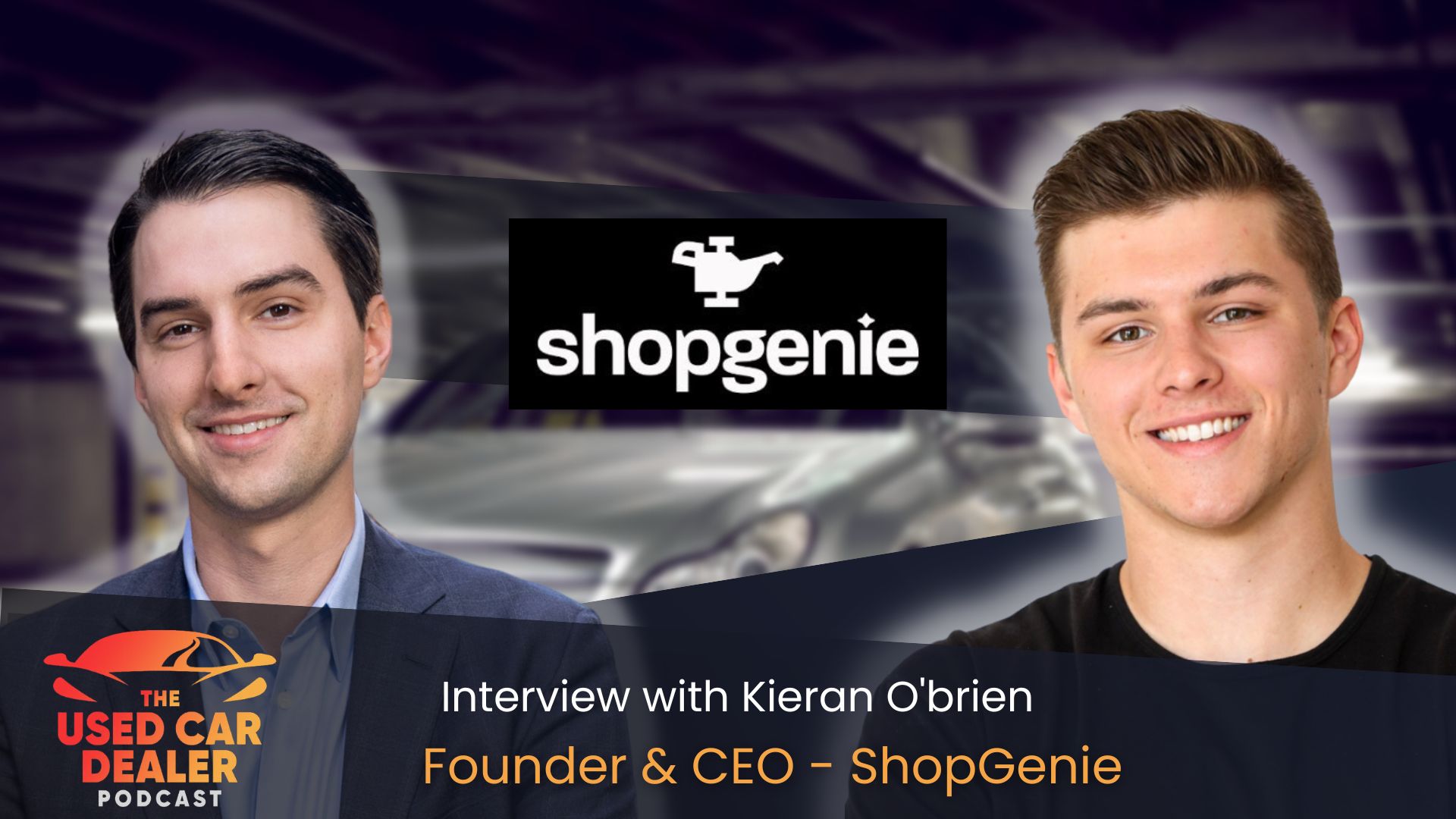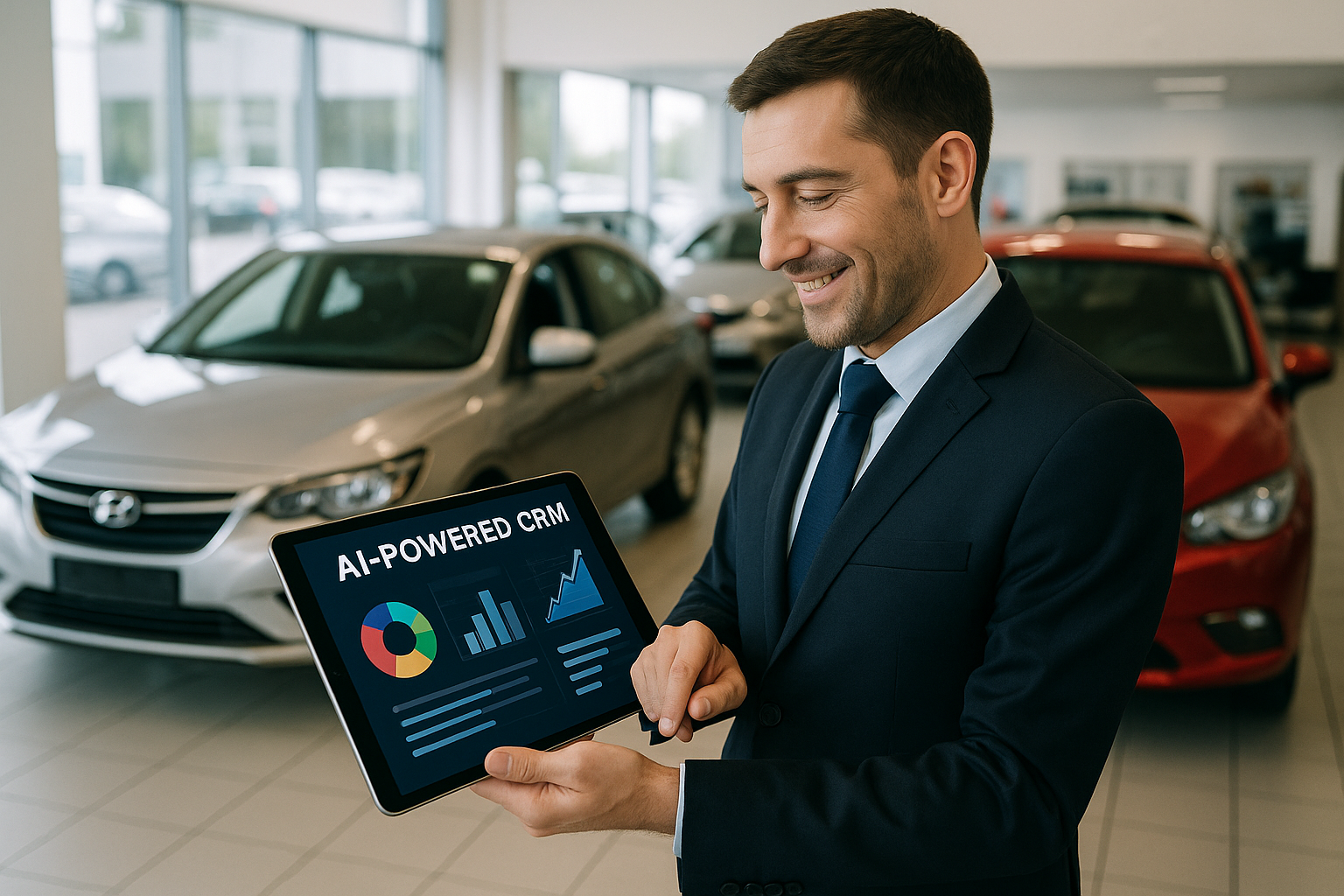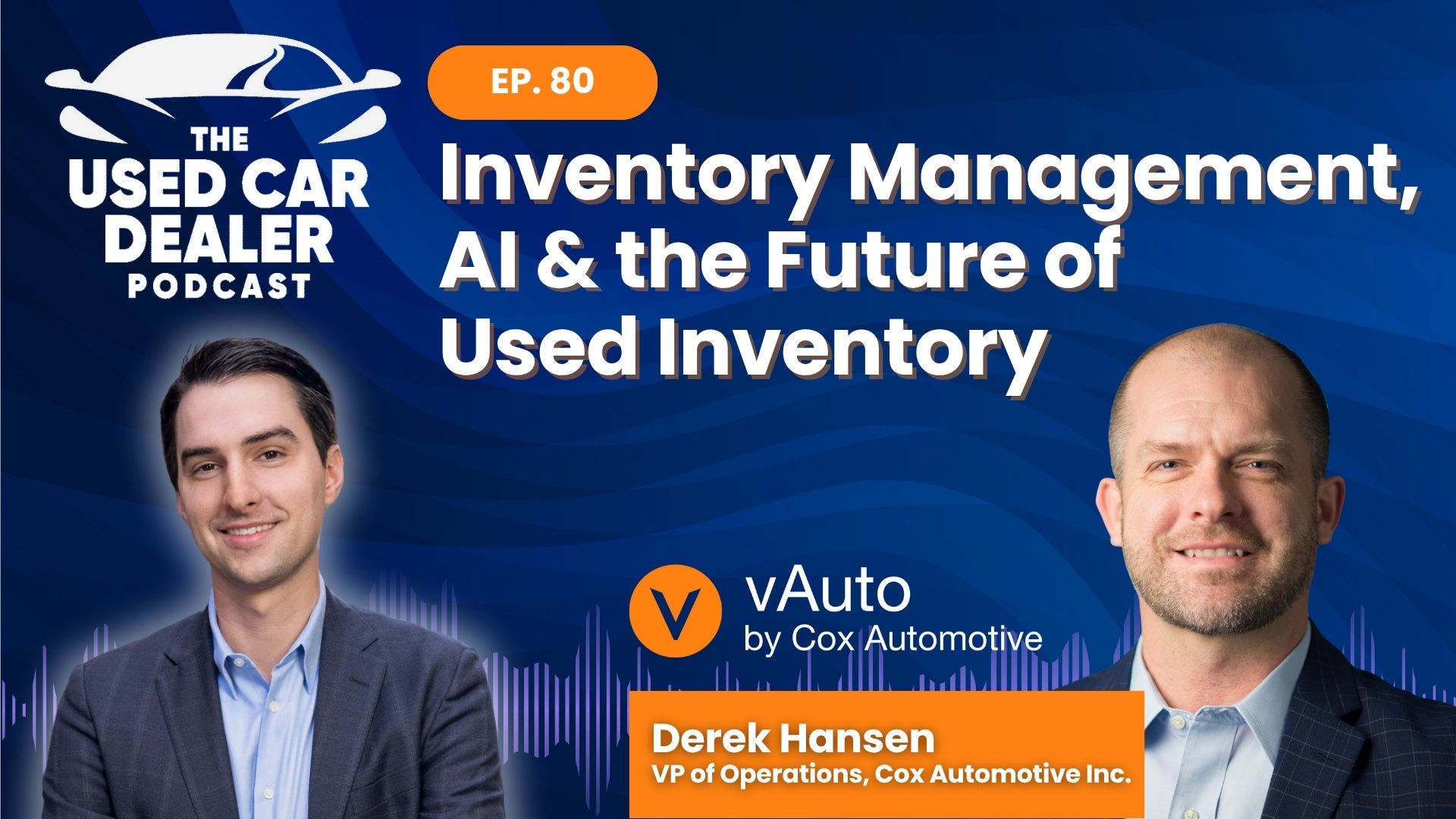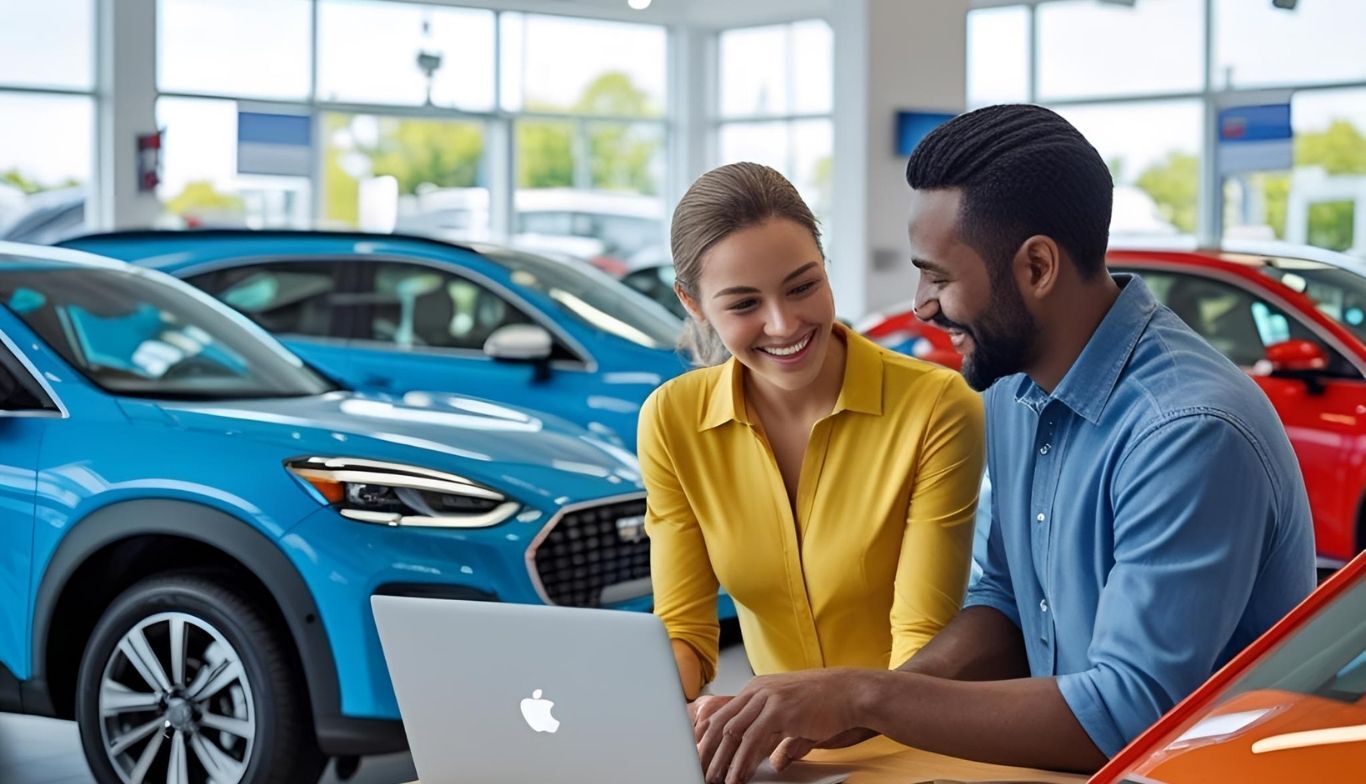In this episode, Zach interviews Kieran O'Brien, the Founder, and CEO of ShopGenie. Zach delves into Kieran’s entrepreneurial journey, which includes selling his first company at just 21 years old. They discuss post-pandemic challenges, issues within the auto repair industry, feedback from ShopGenie's stealth stage (an auto repair platform set to publicly launch June 15th), potential impacts of BEVs, and the implications of right-to-repair legislation, among other relevant topics.
Zach: Zach here and we have an awesome episode on the Used Car Dealer podcast with Kieran O'Brien, the founder and CEO of ShopGenie, which is an automotive repair platform coming out of stealth mode on June 15th. Kieran, thanks so much for joining me on the podcast today.
Kieran: Thanks for having me
Zach: I want to kick things off and start by discussing your impressive background. So tell me about being a young entrepreneur and if I'm not mistaken, you sold your first company when you were 21 years old.
Kieran: Yeah. Yeah, it's been, it's been a long journey. I kind of feel like I've been an entrepreneur through and through. You know, since I was a kid, kind of like, you know, flipping sneakers, the lemonade stands the whole, the whole nine yards. But I started my first business that actually made money when I was 16. It was basically a freelance business doing social media and marketing for auto repair shops actually, and some car dealerships as well back in the day. And so that's kind of how I got my start and it was always automotive. I've always been a car guy. I've always been in the automotive industry in and around it.
That freelance business ended up morphing into more of like a performance marketing agency. So when I was like 18, 19 years old, I was running marketing campaigns for some really large aftermarket parts distributors and managing like $10 to $14 million a year in paid spend on like Google and Facebook for them. And so it's a lot of responsibility for an 18, 19 year old kid. But that was kind of my first foray into the automotive industry.
And then soon after that, I started a software company, actually not in the automotive industry, but it was a data analytics software company. I started that in 2020 and sold it in July of 2022. And yeah, ever since I've just been kind of figuring out what I want to do next and I decided that I wanted to jump back into automotive.
Zach: Wow, that's beyond impressive. You're a country mile ahead of anyone in your age group. So extremely impressive and, you know, taking a step back. So, how did you first get acquainted with the auto repair market? And what problems did you see in that space?
Kieran: Yeah. So my first mentor was the owner of a multi-location auto repair shop, a group of auto repair shops. And, I cold-emailed him one day because I'd heard about him and I wanted to learn about the industry and I ended up interning for him for a little while and running the social media and spending some time at the shops.
I just remember interacting with the software that they were using, whether it was their business management system or the CRM products and marketing products they were using. And I just remember thinking to myself at 16, 17 years old, like, man, this is really outdated, this looks like software that was built in the nineties and it hasn't changed. And so, back then I didn't know anything about software, right? So I didn't do anything about it.
Then fast forward 5, to 6 years later, I sold my software company and now I know enough to start a software company and I feel confident doing that. So I went back to check out those auto repair softwares and just kind of the state of the market. There had been some great advancements on the cloud-based management system side of things. But the complementary CRM and marketing software to go along with those, much like in the dealership industry, they just hadn't made any progress and they were still kind of stuck in the stone ages. That's kind of how I stumbled across the opportunity.
Zach: Yeah, there's a lot of continuity with selling and used car dealerships and coming out of the pandemic. What do you think are some of the biggest opportunities you've seen for auto repair shops?
Kieran: Yeah, absolutely. Digital customer experiences are everything now. Quite frankly, my business partner and I, who was in the automotive dealership space in the automotive sales side of the industry for a long time, we talk about this a lot. The auto repair industry is 5 to 8 years behind the dealership industry. All the technology that's been standardized on the dealership and sales side has not transferred over to the service side and the independent auto repair side.
Things like automated marketing campaigns, online scheduling, and review generation, basic stuff just quite frankly, has not existed in this industry. And if it has, it's been very subpar. The sales cycle for a repair shop is very different from a dealership where you're just servicing the vehicle, you don't have to worry about selling it. So one of the simplest ways for repair shops to improve, not only through the pandemic, but also now moving into a whole new digital world with lots of gen Z consumers keeping their cars for longer than ever and needing to repair them, is something as simple as having an online scheduling tool on your website. This can be a make or break item for a repair shop in 2023.
Zach: So Shop Genie is coming out of Stealth on June 15th, and for dealers maybe unaware of the Silicon Valley lingo, what exactly does stealth mean? Can you tell us more about that as well as the idea that founded Shop Genie?
Kieran: Yeah, absolutely. So stealth mode is basically when a company is working on something without publicly marketing it. It's mainly to keep our ideas and our progress away from our competitors.
That's part of it. But a bigger part is just to be able to kind of operate in a silo and only take on customers that we want to take on while we're building and iterating. And so, you know, a lot of software companies choose to do this where they work on something for months or even years without putting a name to it, without saying it publicly. And then that way, when they eventually announce themselves to the world, the product is actually polished and ready and doesn't have a ton of crazy bugs.
And so, you know, we were lucky enough, we own the second or third-largest Facebook group, for auto repair shop owners. And so we didn't have to go out and market us, market ourselves a whole bunch to get some beta customers. So we've got dozens of incredible beta customers that we were able to bring in without talking about the company publicly, to come and use the product and, and give user feedback. And we've been doing that for the last, 10 months, 889 months, maybe.
So, you asked about the origin story.
So, my, my first business before I started my software company was, like I said, a marketing agency and we worked with a lot of auto repair shops and auto service centers and we were using a white labeled CRM software and we were trying to kind of jerry rig it together to make it work for these repair shops and it just didn't work. So, you know, this software did a lot of the same things that shops do now, but it was a generic one. It wasn't auto repair specific. And so we would use it for texting and reviews and stuff like that. But, there were just so many shortcomings to that software that we realized we had to build it on our own.
Zach: That's awesome. Really interesting. And what sort of traction and feedback have you received while in stealth?
Kieran: Oh, it's been amazing. We've got some of the brightest, most influential shop owners in the space. I'm assuming it's very similar to the dealership industry where there's, you know, these guys that are kind of thought leaders in the industry, and we have the privilege of having a lot of them as our earliest customers. And, you know, the feedback loops are just incredible like these guys, they're, they're tired of being, you know, mistreated or ignored by their software vendors. And so we really just try to go above and beyond to communicate, provide the best customer experience that we can. And I always joke about this, like we call ourselves a customer experience platform and we're, we're not a B2B company, we're a B2B2C company because we sell our software to repair shops. But ultimately, the repair shop's customer is the one that's interacting with it, right?
So that's something that we really focus on is creating incredible customer experiences for our customers. But upstream, we also try to create incredible customer experiences for our customers. And so just kind of going above and beyond taking all their feedback into account really listening to them. I think, you know, if there happens to be any software founders or anybody like that listening. And you know, for, for a matter of fact, this is even useful for even somebody like a dealership principle. But if you just really make your customers feel heard and feel listened to that goes above and beyond anything else, it's more important than the product. It's more important than marketing customer service. The customer experience that you provide is absolutely everything, especially in a world where software companies are very hands-off.
Zach: Definitely! I couldn't agree more with that statement and what are some of the major pain points in the auto repair space your solution is solving?
Kieran: Yeah. So, I mean, the biggest one is online scheduling. So we've built the industry's first real-time online scheduling tool that books appointments based on bay, technician, and service availability. And it's so good and we believe so strongly in it that we're actually giving it away for free. So if there are any repair shops listening, we are, we basically are giving away our online scheduling tool completely 100% free for life, to, you know, so you can try out online scheduling at your shop. So that's, that's a big one.
So, I think it goes understated how important it is for customers to be able to come to your website, whether it's two o'clock in the morning on Christmas Eve or just the middle of a workday and your front desk receptionist just happens to be tied up doing something else. It's really important that you don't miss those customers. And, you know, there's some staggering statistics Zach out there. You know, for example, there's one about how 61% of Gen Z consumers prefer online scheduling or web chat, to a phone call, right? And this isn't unique to auto repair. This is all industries. So if you're a dealership principal, whether it's for your sales department or your fixed ops department, just keep that in mind, you need to provide a way for customers to get in touch with you digitally, whether it's web chat or online scheduling, ideally both, because Gen Z does not want to pick up the phone and do this anymore.
And so, yeah, that's, that's a big thing is online scheduling outside of that. We have an all-in-one CRM platform. So we actually handle websites and digital marketing for shops as well. And then we also have a CRM that does things like review generation, service reminders, appointment reminders. You're able to see all of your shop metrics. So we have some really interesting reporting as well around certain metrics that are important for a shop owner to track all your marketing reporting as well as is in one place. And so, yeah, I'll kind of wrap it up there.
Kieran: I think the most important part of it is just consolidation. Our industry is tired. Shop owners specifically are tired of dealing with so many different software vendors for all these different things. We're consolidating it and putting it under one roof.
Zach: And what are some of the lessons you've taken from your last startup and incorporated into Shop Genie?
Kieran: One of the lessons is customer service. My last company was a direct-to-consumer software product. So the customer experience is very different for a consumer startup. But for a B2B startup, like ours and like Selly, it's very important that we go above and beyond with customer experience. And we have definitely started to focus on that more when it wasn't as much of a focus at my last startup.
Beyond that, I think it's about the product and avoiding tech debt. Our last product required a major refactor, which took a lot of time away from being able to ship the product. So in the tech world, what it means is just building your software on the right stack of tools from day one so that you don't have to go back and redo all your hard work all over again.
Zach: Definitely agree with that, and onto the futures question. Battery electric vehicles (BEVs) are taking a lot of consumer mindshare here in San Francisco. What are your thoughts when it comes to BEVs in the auto repair space and the potential challenges or opportunities these vehicles present?
Kieran: Well, you know, the joke that I always like to say is that BEVs are still involved in accidents. They still need body work, they still have brakes, they still have tires. A lot of our beta customers at Shop Genie are starting to lean more into hybrid and BEV repair. So, with right to repair, a lot of these shops are able to get their hands on OEM service guides from companies like Tesla or Lucid, and they're able to repair and fix these vehicles.
These BEVs, while they might not have engines, they still have powertrains, brakes, tires and all these other things that need to be repaired and maintained. And quite frankly, if the dealerships were to try to handle that all on their own, the customers wouldn't be able to get their car fixed in time. The independent auto repair ecosystem here in America and worldwide is very important to the consumers that are driving these vehicles.
Zach: So how do you see the automotive repair space developing over the next couple of years with new legislation being pushed like the right to repair bill?
Kieran: Right to repair has been an issue for over 10 years. The reason that it's become even more of a hot-button topic lately is because historically, you could repair a car with an OBD-II scanner, and you're good.
Kieran: The problem now is a lot of these cars are, they're more computers and cars now. They're getting updates, software updates over the air, and it just makes it difficult, number one, for people to work on the cars, but then number two, for people to just keep up with what's happening. Right. And so I think it's very important that the right to repair exists and of course, this goes beyond automotive. This is for, you know, fixing your iPhone or, or, you know, for, for farmers to fix, fix their, their farm equipment. The reality is there aren't Apple stores or for dealerships everywhere in America. Sometimes there's a customer that needs to get it fixed or wants to get it fixed by an independent auto repair shop. And again, to my previous point, if everybody had to get their cars fixed at the dealers, there would be a massive backlog, there wouldn't be enough, you know, enough service bays, people would be waiting weeks or months to get their vehicles fixed. And so again, the independent repair facilities in America, there's over 250,000 of them, are a very important piece of the automotive ecosystem.
Zach: Definitely and lastly, can you give us an idea of what's coming down the pipeline for ShopGenie for the rest of 2023?
Kieran: Yeah, absolutely. One of the big things that we're working on is the application of AI in our product. So we have a product called Jasmine, which is our AI assistant for auto repair shops. She is the first, the first AI chatbot that's been trained on automotive repair specific data. So imagine for a moment, having your own personalized chat GPT bot that knows everything about your auto repair shop. So she can answer after hours questions, she can do scheduling, she can give you contact from your previous repairs, she knows all about your vehicle, she knows all about your upcoming recommended services and all that. And so it's just a really powerful thing that we're working on. It's not quite ready for prime time yet. So, it will be built into our CRM at some point in the next few months. But that's a big focus for us in 2023.
Zach: That's awesome. And I just wanna say, Kieran, you're one of the most impressive entrepreneurs your age that I've talked to in the automotive industry. You're so thoughtful, so articulate. So it's been a pleasure having you on the Used Car Dealer Podcast and we'll link to your company ShopGenie as well. But I just want to personally thank you for coming on this podcast.
Kieran: Absolutely. Thanks for having me, Zach. I appreciate it.






.jpg)
.jpg)
.jpg)
.jpg)


.jpg)
.png)
.png)
